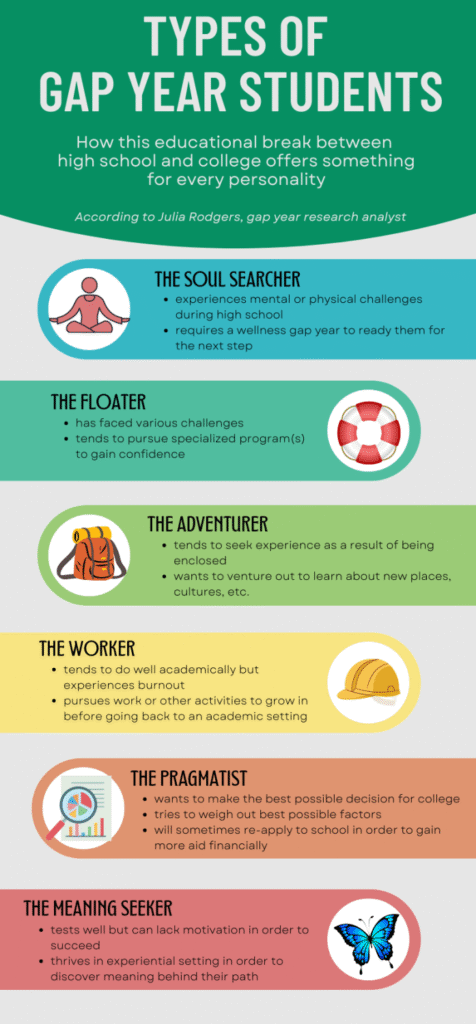Taking time off from your academic pursuits can be a valuable experience, allowing you to explore different interests, gain real-world skills, and ultimately clarify your educational goals. However, applying to college after 2 years off might seem daunting. This comprehensive guide will walk you through the process, offering practical tips and insights to help you navigate this transition successfully.
From highlighting transferable skills to crafting a compelling personal statement and exploring financial aid options, we’ll cover everything you need to know to make your return to college a smooth and rewarding one.
Returning to College After a Gap Year
A gap year or two can provide invaluable opportunities for personal and professional growth. Whether you spent time traveling, working, volunteering, or pursuing personal projects, these experiences can shape your perspective and enhance your understanding of yourself and the world around you. When applying to college after 2 years off, it’s crucial to articulate how this time away has positively impacted your academic aspirations and personal development.
Reflect on the skills you’ve acquired during your break. Did you develop strong communication, problem-solving, or leadership abilities through work experience? Did volunteering expose you to new cultures or social issues, broadening your horizons? These experiences demonstrate maturity, initiative, and a commitment to learning beyond the traditional classroom setting.
Remember, colleges value well-rounded individuals who bring diverse perspectives and experiences to campus. Embrace your gap year as a testament to your growth and readiness for higher education.
Transferable Skills for College Applications
Colleges seek students who possess not only academic prowess but also transferable skills that contribute to a vibrant learning community. When applying to college after 2 years off, showcase the skills you’ve developed during your time away from formal education.
Work experience, even in seemingly unrelated fields, can equip you with valuable transferable skills such as teamwork, communication, problem-solving, and time management. Highlight specific examples of how you utilized these skills in your previous roles.
Volunteer work demonstrates your commitment to social responsibility and often involves collaboration, leadership, and interpersonal communication. Personal projects showcase your initiative, creativity, and ability to pursue goals independently. Remember to tailor your resume and personal statement to emphasize the relevance of these transferable skills to your chosen academic path.
Personal Statement Tips
Your personal statement is an opportunity to tell your unique story and demonstrate your passion for learning. When applying to college after 2 years off, use this essay to address your reasons for taking time away from school and articulate your renewed commitment to education.
Be honest and reflective about your experiences during your break. Explain what you learned, how it shaped your perspective, and how it has ultimately led you back to the pursuit of higher education. Showcase your maturity and self-awareness by acknowledging any challenges you faced and how you overcame them.
Choosing Colleges for Returning Students
Not all colleges are created equal when it comes to supporting returning students. Some institutions offer dedicated resources, mentorship programs, and flexible academic schedules designed to cater to the unique needs of non-traditional learners.
Research colleges that have a proven track record of welcoming and supporting applying to college after 2 years off. Look for institutions with strong advising services, peer support groups, and on-campus childcare options if applicable. Consider factors such as location, program offerings, and overall campus culture to find the best fit for your individual circumstances.
Financial Aid Options
Returning to college often comes with financial considerations. Fortunately, there are various financial aid options available to help make education more affordable.
Explore scholarships specifically designed for returning students or those who have taken time off from school. Research grants and federal student loans that can cover tuition and living expenses. Contact the financial aid offices of your prospective colleges to discuss your eligibility for need-based aid and explore payment plan options.
Conclusion
Returning to college after a break can be a transformative experience, allowing you to pursue your academic goals with renewed purpose and perspective. By highlighting your transferable skills, crafting a compelling personal statement, choosing the right college environment, and exploring financial aid options, you can navigate this transition successfully and embark on a rewarding educational journey. Remember, your experiences outside of traditional academia are valuable assets that can enrich your learning and contribute to your success in college and beyond.



